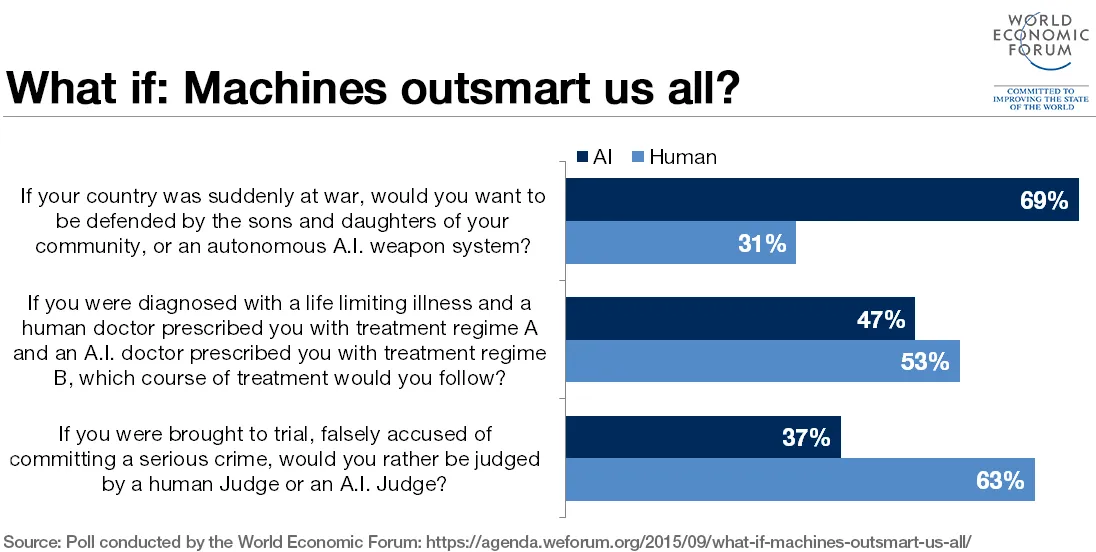
The future of work looks full of promise. Combining human brainpower with artificial intelligence, virtual reality and automatization will revolutionise how we work. Already, robotic enhancement is helping humans exceed their natural capabilities; AI is opening the door to real-time, personalized intelligent services cutting waste and maximising results. And virtual and augmented reality are enabling real-time learning, human-robot collaboration and better work safety.
Disruptive innovation is not exclusive to our age. Farming turned mechanized from manual; the manufacture of automobiles moved from a craft industry to assembly line production. But it raises huge questions for companies and workers who face the challenges – and opportunities – of digital disruption.
Technological revolution is our prime hope for meeting issues like ageing and shrinking societies. But we must acknowledge it can trigger fears, explaining, perhaps, the growing calls for radical responses, such as a state-guaranteed universal basic income to support swelling numbers of unemployed. Either way, digitalization throws up huge questions about people’s self-worth and sense of humanity.